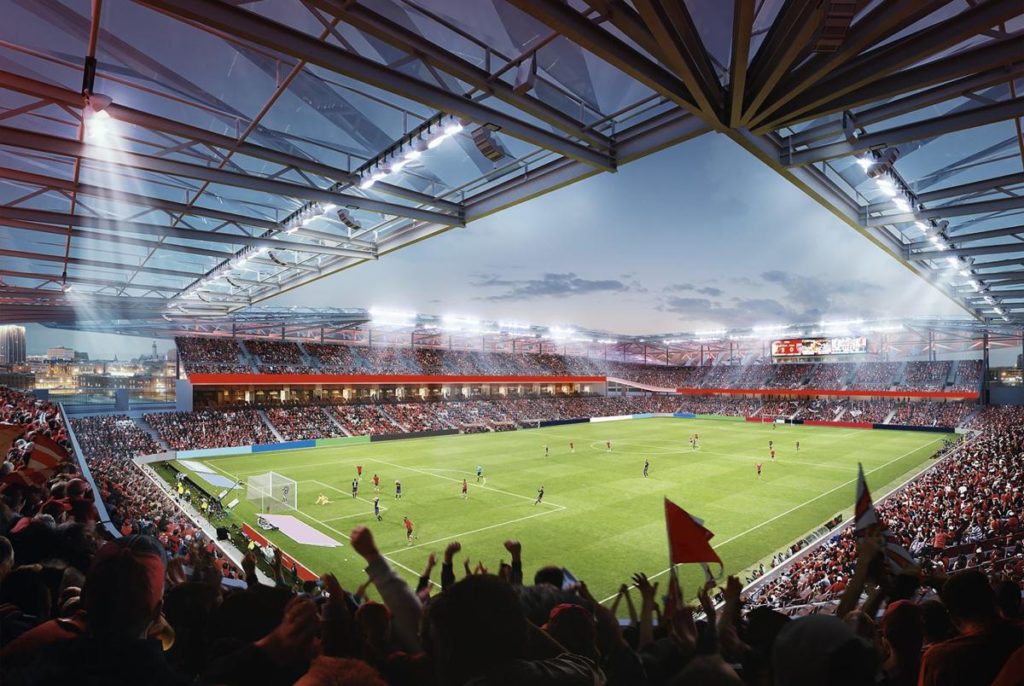
Now that St. Louis has had its MLS expansion bid approved, club investors will turn their efforts toward finalizing a new stadium plan.
Last week, MLS announced its approval of a bid to make St. Louis the home of the league’s 28th team. Backed by members of Enterprise Holding’s Taylor family—including Enterprise Holdings Foundation president Carolyn Kindle Betz—and Worldwide Technology CEO Jim Kavanaugh, St. Louis’s bid emerged as a top contender because of elements common in successful expansion pitches. It features solid local ownership along with plans for a new downtown soccer-specific stadium, set to anchor surrounding development.
Planned for a site west of Union Station, the new stadium is estimated to cost about $250 million. It will be the centerpiece of the Downtown West district, an area that will also include mixed-use retail, restaurants and gathering spaces open to the public on a year-round basis.
Broad terms of the deal are outlined in a resolution between the city and club investors that was approved last November, but there is still work remaining in order to finalize the plan. A land transfer for the site has to be settled, and it is likely that terms between the city and club will be further negotiated before a final deal moves forward. Current plans call for city ownership of the stadium, with special sales tax districts and certain tax breaks factoring into the equation. More from the St. Louis Post-Dispatch:
The city’s economic development arm, the St. Louis Development Corp., is still negotiating the final terms of a stadium lease and the land transfer with the Missouri Department of Transportation that will turn excess road right-of-way into a foot-traffic-generating attraction along Market Street. Those details could be a month or so away.
But the outlines of that deal were reflected in a nonbinding resolution overwhelmingly endorsed by St. Louis aldermen, 26-2, in November.
At least two, and possibly three, special sales tax districts would be set up, each charging 1% on stadium purchases to contribute to the stadium. The city would own the stadium and lease it to the ownership group, resulting in a property tax break estimated at a little over $1 million a year. The land is currently owned by the state and not taxed, so it would not result in a loss of property tax dollars.
The city would exempt sales taxes on construction materials, saving about $4.5 million for the ownership group. And half of the city’s 5% ticket tax would be abated, with the other half going to a stadium upkeep fund that city analysts estimate would collect about $28.7 million over 30 years.
Locally, the stadium funding plan received a better reception than the one included in St. Louis’s previous bid—which effectively stalled when voters rejected a proposed public funding contribution in an April 2017 referendum—and undoubtedly helped move this effort forward. Club investors will have to finalize those plans in addition to completing some other tasks, including steps to bolster corporate support through avenues such as naming rights and jersey sponsorship.
St. Louis will be MLS’s 28th team. There are 24 clubs competing in the 2019 season, with Nashville and Miami set to join in 2020, followed by Austin in 2021.
Rendering courtesy HOK and Snow Kreilich Architects.
